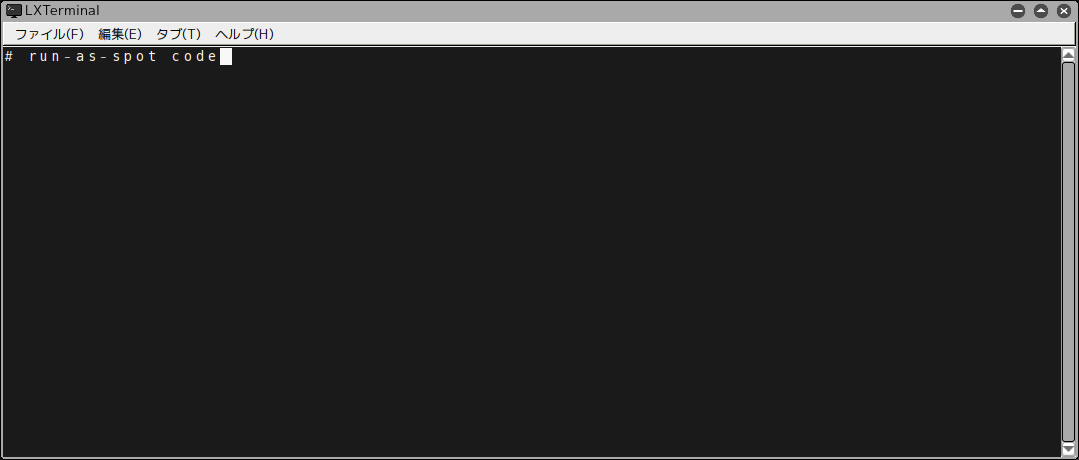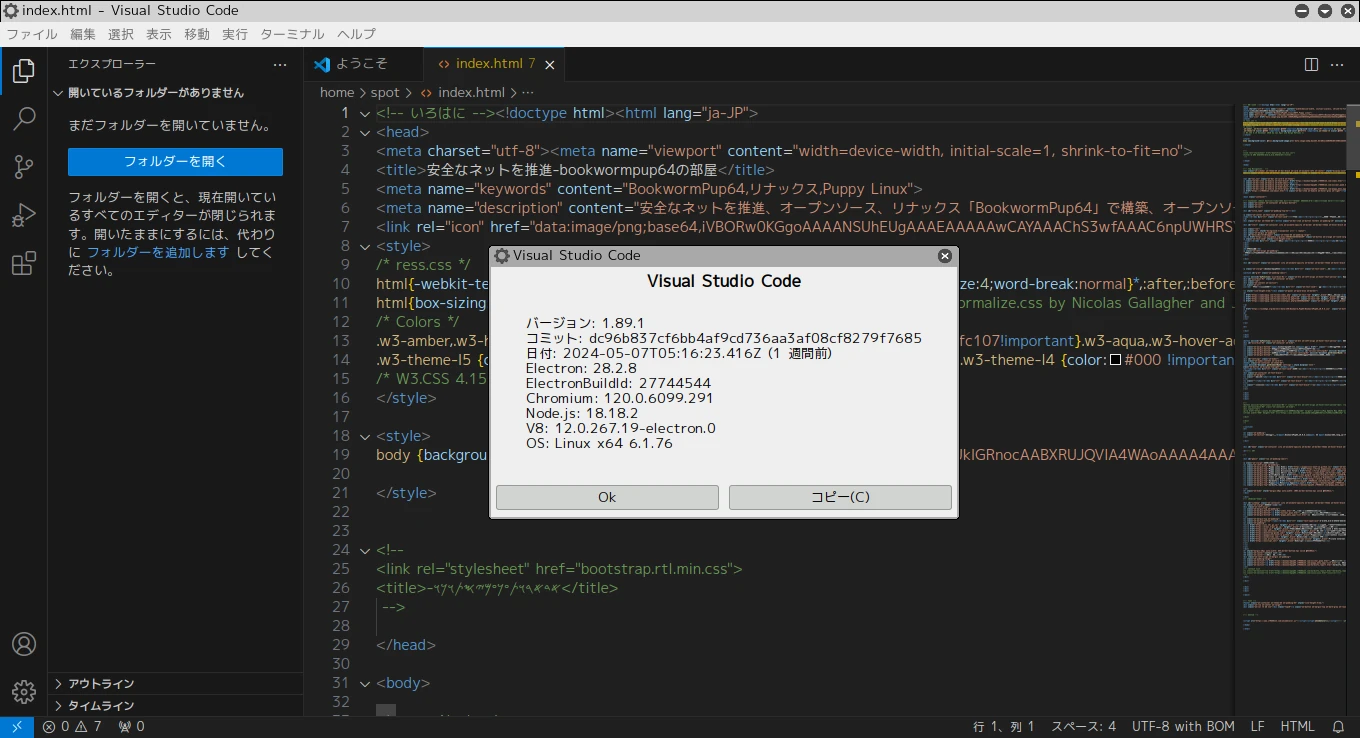同梱のヘルプページ ROOT&SPOT
以下の文章は「同梱のヘルプページ」から引用&加筆したものです。
ブラウザのアドレスバーへ「file:///usr/share/doc/root.htm」をコピペして、閲覧してください。
もしくは、Menu → ヘルプ、から閲覧してください。
About root and spot
This is a short explanation of why users run as the administrator (root) in Puppy Linux, and/or use the non-root spot account.
root, spot
In a nutshell, root login gives you total access to everything, whereas a non-root login gives you restricted access (that is configurable for each user by the administrator).
Puppy is not a multi-user system as are most other Linux distributions, in which there is a root login plus any number of non-root login accounts.
Puppy on the other-hand, has root, plus a non-root login, named spot.root
There are two main objections to running as root: firstly, that you might accidentally do something dumb, such as delete important files, secondly that if someone gains access to your computer, either remotely via the Internet/network, or locally, they will be at root-level and able to do much more damage than if they gained access as a non-root user.
Doing something dumb
In the case of accidentally wiping important files, which files are important to you? Your own personal files and data of course, which regardless of whether you are logged in as your non-root account, or logged-in as root, you are just as prone to doing the same dumb thing.
That is, your personal files, settings, applications, are all owned by the non-root user, and can just as easily be deleted by the non-root user as can be deleted by the administrator.
In other words, this argument against running as root is itself dumb. At least in respect to the safety of your own files.Where the "doing something dumb" argument is valid is in a multi-user system, where the administrator could accidentally delete or otherwise compromise another user's files. However, Puppy is not multi-user.
With regard to system files, they can easily be restored, in fact Puppy makes this easy as the entire system is in one Squashfs file.

spot
This brings us to 'spot', which is a classical name for a dog. But, spot is not a normal user, you don't login as user spot. Instead, you bootup in the normal way as the root user, but you can choose to run some Internet applications as the restricted user spot.
This means that you have unfettered access to your local system, all the benefits of root, no hassles with file/directory ownerships and permissions, no restrictions on access to all hardware.
But, you can run, for example, SeaMonkey (browser, Composer, mail&news, IRC-chat suite), as spot. The home directory for spot is /home/spot, and SeaMonkey will only be able to (normally) edit/create/write files inside /home/spot.With spot, you have the best of both worlds. Freedom in your local system, a restricted user for Internet access.
Run any application as spot with: run-as-spot app [arguments]
You can also create a script to automate thisWhen running programs as spot becomes a requirement
Though, running programs provided by Puppy will not face any error to run as root, still there are few applications which do not like being run as root. One of the major such application is Google Chrome, and the others including those which are probably designed using Electron (Visual Studio Code itself is designed over Electron). Many of these applications could be run as root as well, through a terminal in this way- app_name --no-sandbox [...] Though, this will work if and only if the --no-sandbox command line parameter is accepted by the program. Still, the another way to make these programs work would be using this- run-as-spot app_name [...] which does nothing but run the program (here referred as app_name) as the user spot.
Final note
Puppy is designed for people who know what they are doing and what they want, and they want to do it with the least hassles. They also want exclusive use of their computer, or maybe will share with a trusted person. If you want to put a small child in front of your computer and let them wreak havoc, Puppy is not recommended, but then, they could wreak havoc regardless of operating system.
At least with Puppy, you can rescue an old PC, install Puppy, and let him/her do whatever. It is affordable for each user to have their own separate hardware.Links
FatDog64, a fork of Puppy created by "kirk" and "jamesbond", has since its inception run all network apps as user spot. Those guys have created an excellent web page that explains why running as root is safe (or not less-safe than running non-root):
http://distro.ibiblio.org/fatdog/web/faqs/login.html
Some more relevant links:
https://code.visualstudio.com/Download#から
「code_***_amd64.deb」をダウンロードし、導入。
↓
VSCodeをコマンドコピペ「# run-as-spot code」で立ち上げ。
↓

↓

↓
しかし、以下のサイトで
↓
↓
オンラインエディタを活用「vscode.dev」
↓
各自で自由にエンジョイ&"enjoy"